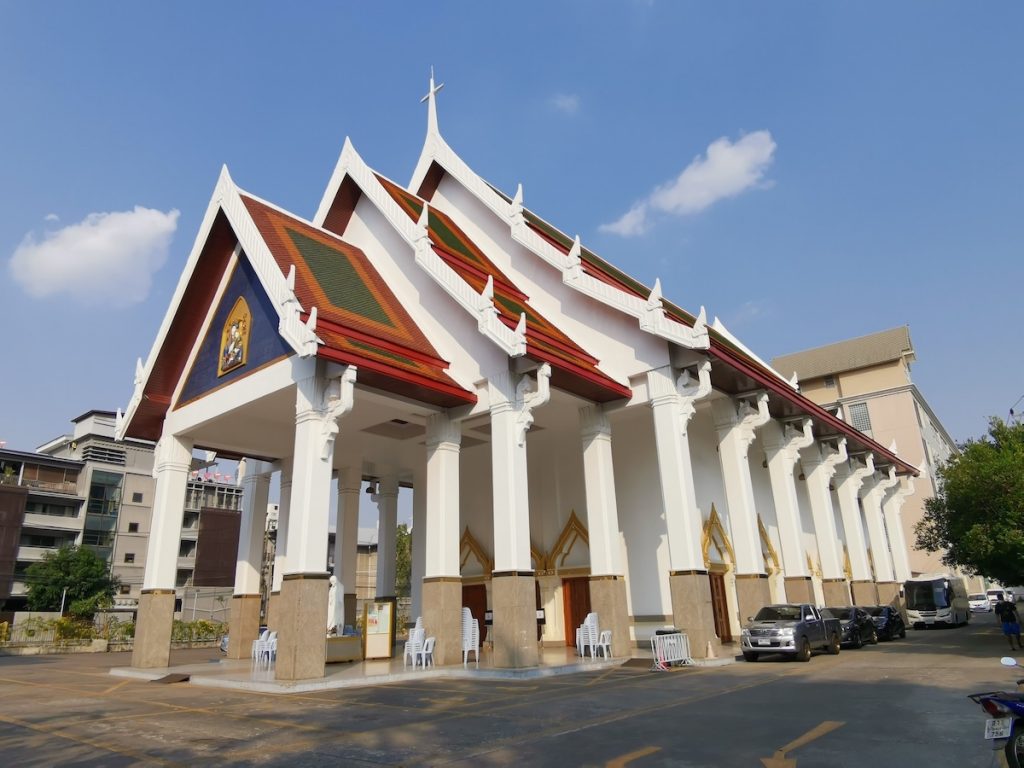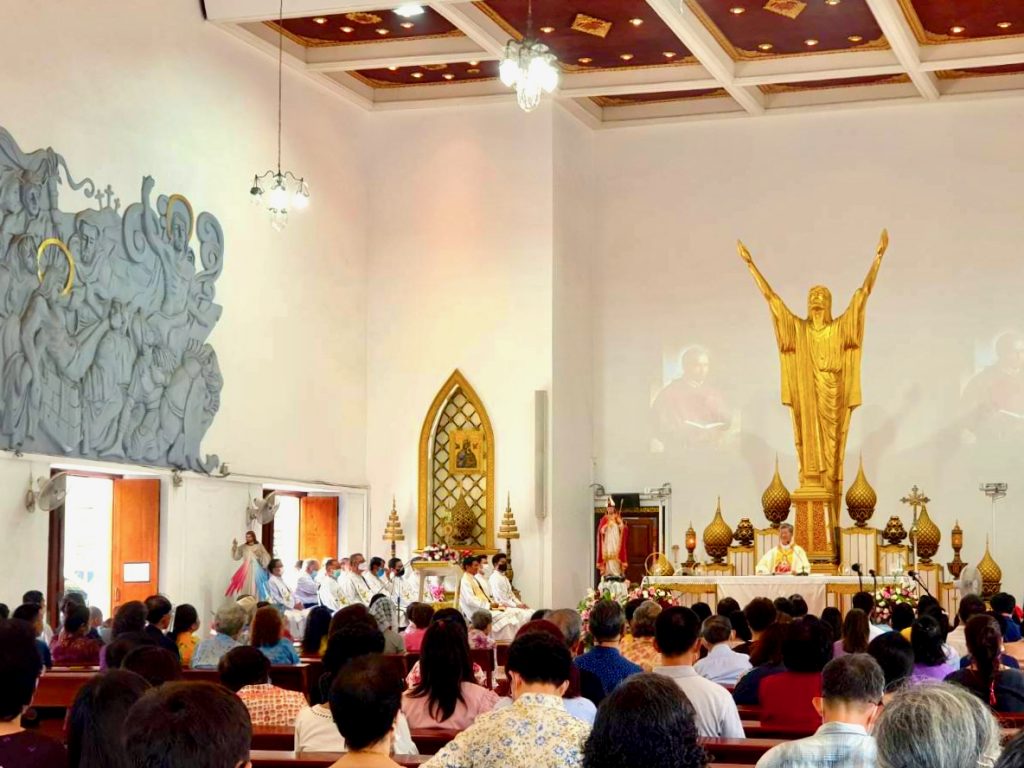When the coronavirus pandemic hit Thailand, “the Rebels of St. Alphonsus”, as Redemptorists are sometimes referred to in the Catholic circles of Southeast Asia, kept their church open. They continued to welcome everyone, treat the sick and take care of the elderly irrespective of their religion and nationality.
On Jan. 26, there were 959 people infected with the virus in a single day in the country, most of them migrant workers from Myanmar. Since the start of the pandemic, there have been 77 deaths and 18,782 infected as of Feb. 1.
Thais have a phrase “khi klua”, meaning to be scared easily. However, this cannot be considered entirely negative, given that in Bangkok 99 percent of people you meet wear face masks, disinfectant gel dispensers are everywhere, and social distancing is respected — a different world from Europe and the US.
But even here fear prevails.
For example, the country’s Catholic churches, both in the first and in this second wave, remained strictly closed by order of the archbishops of Bangkok and Tha Rae. All but one.
The parish of the Holy Redeemer in Bangkok has always remained open with all COVID-19 precautions taken.
“We strictly follow all the procedures of sanitation, distancing, hand cleaning and temperature control, so we can remain open. Officials from the government came to check and found nothing wrong at all with our arrangements,” said a Redemptorist priest at the church, which is located in an alley in central Bangkok called “Soi Ruamruedee”, meaning “united at heart”.
The Church of the Holy Redeemer in Bangkok is famous for its traditional Thai architecture. It has no air conditioning, but the side doors are always open allowing excellent ventilation a benefit in during the Thai summer and now for minimizing the risk of spreading coronavirus.
All the activities to assist the poor and the elderly who live in the predominantly Muslim community near the church have continued throughout the pandemic even during lengthy periods when Bangkok was in lockdown.


There have been concerns voiced by some who live near the church that the daily food handouts and home visits to check on the elderly could spread the virus, but since the start of the pandemic, no clusters or community transmissions have originated from such activities at the church.
Last year, at Easter and shortly before Christmas, when the first and second waves of the pandemic hit Thailand, many Christians have turned to the Redemptorists. Both at the parish itself and through its comprehensive online eucharistic celebrations and catechism services — all livestreamed to the church’s 13,000 Facebook followers.
The story of the Redemptorists defying expectations in face of criticism has been repeated since May 1, 1949, when a small group of young American Redemptorists arrived in Thailand and started making history here in the wake of the spirit of their founder, St. Alphonsus Maria de Liguori (who lived in the 18th century).


In 1954, they controversially built their church in the style of a Buddhist temple. The Redemptorists of that time asked the architects to design a Thai style church, not wanting to build the usual French style building, such as it was fashionable at the time.
The result still stands today as the Church of the Holy Redeemer in Soi Ruamruedee, a street not far from the commercial district of Bangkok. It is now one of the best known and appreciated places by both Thais and foreigners who arrive here, especially on Sundays. The Redemptorists’ “rebels” can-do attitude is reflected in a common saying among the Catholic faithful In Thailand that “if you can’t get married in a parish, if you can’t get your child baptized, if you can’t confess in any church, then go to the Church of the Holy Redeemer”.
In just under 100 years of the Redemptorists’ mission in Thailand and Vietnam (where they have been since 1925), the children of St. Alphonsus have been there for the homeless, orphans, disabled, blind, hungry, illiterate, refugees, and people who have fled and people who have arrived in Thailand not knowing a single person here. And they have often stood up, in the name of the poor, against abuse and oppression.
In these times of pandemic, their testimony of warmth, happiness, openness, welcome is of even greater value.
“Let’s not stop love,” recalled the outgoing president of the Focolare Movement, Maria Voce, her exhortation embodied by these Redemptorists “rebels”.
This article was originally published in Italian by Città Nuova at: https://www.cittanuova.it/thailandia-gli-amorevoli-ribelli-santalfonso/


